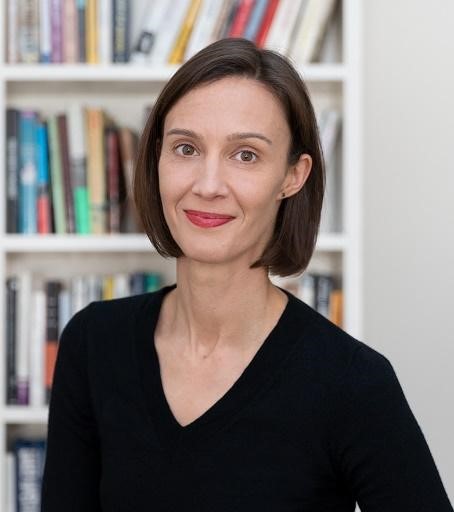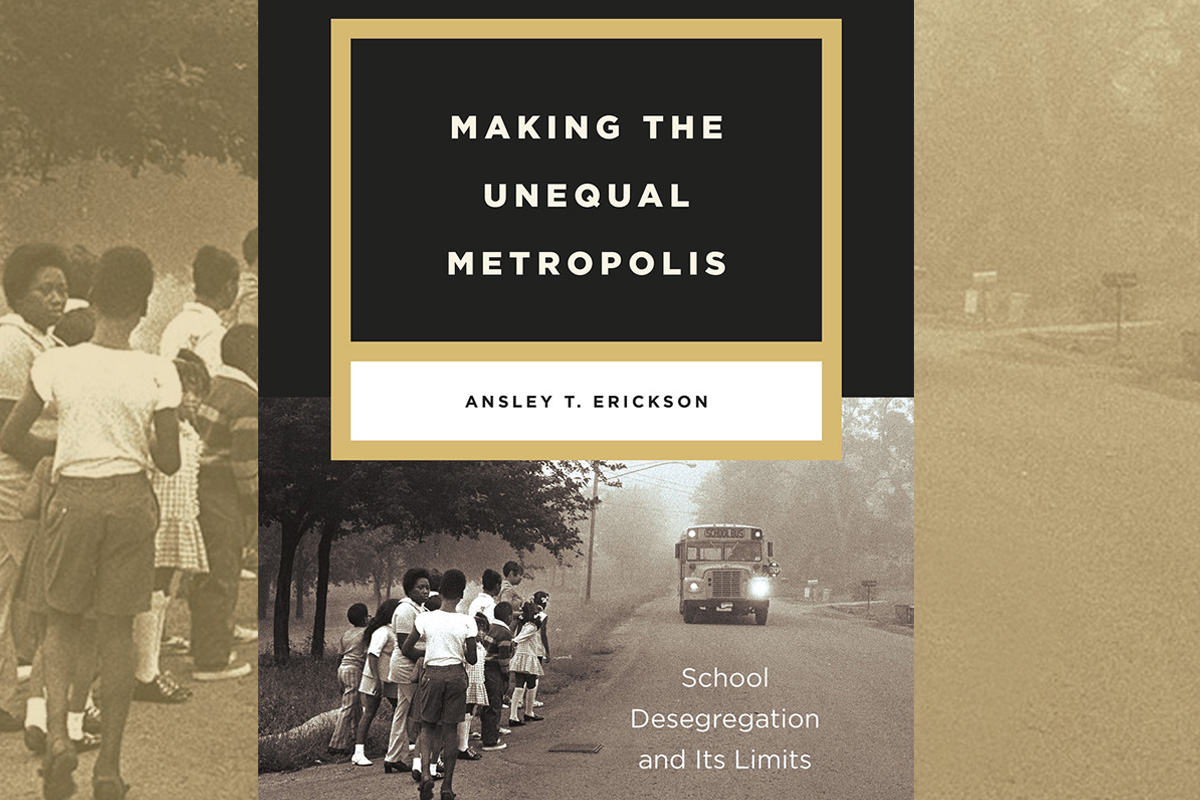Nashville, Tennessee, has long been viewed by much of the nation as a desegregation success story — and indeed, from the early 1980s through the late 1990s, it was on a short list of the most integrated American cities.
In 2016, TC’s Ansley T. Erickson exposed the darker reality behind those numbers with her award-winning book, Making the Unequal Metropolis: School Desegregation and Its Limits (Historical Studies of Urban America), published by University of Chicago Press. The book details the many ways in which the city has maintained separation and segregation in its schools and neighborhoods, even as it assembled impressive statistics on paper.

ARCHIVAL KNOWLEDGE Erickson knows the history of the Kelley lawsuit better than anyone except the judges and the lawyers, says podcast host Meribah Knight.
Now Erickson, Associate Professor of History & Education Policy and Co-Director of the College’s Center on History & Education, is a voice in a new segment of The Promise, a podcast series created by WPLN Nashville Public Radio that has been praised by The New Yorker for its “stellar” reporting and “keen ear for character and detail.” Drawing heavily on Erickson’s research, the installment traces the history of a 43-year lawsuit (Robert Kelley v. the Board of Education of the City of Nashville) brought by 22 Black families in East Nashville in 1955. It powerfully shows how, in the words of reporter and narrator Meribah Knight, the city’s leaders “fought against integration at every turn.”
The Ku Klux Klan and the White Citizens' Council descended on the city in the wake of the Supreme Court’s 1954 ruling that school segregation is unconstitutional. A Nashville elementary school was bombed (the lead suspect was the segregationist and KKK member Frederick John Kasper, a protégé of the poet Ezra Pound, but he was never formally charged and the case remains unsolved), and White supremacists threatened that “blood will run in the streets.” As a result, Black children continued to attend all-Black East Nashville schools such as Warner and Lockeland.
By 1969, nine in 10 Black students in Nashville still attended all-Black high schools, and city officials had carved out exemptions for more than 30 all-White schools on the outskirts of the district.
It was the black families who were most inconvenienced by busing. Federal officials who helped plan the 1971 busing order said, ‘We will not ask white children in first or second or third or fourth grade to ride buses out of their neighborhood. We will not do it because their families will say no and withdraw from the school system, and that will undermine integration. So we have to accommodate their resistance. But we can ask black children, so we’ll do that.’
—Ansley T. Erickson, from The Promise podcast
During the years of court-ordered busing, Nashville’s grudging integration efforts did yield results: Over a 20-year period, the percent of Black students in the city whose performance on standardized tests ranked below the state average shrank from 70 percent to 25 percent. Yet Black families sacrificed heavily for those results.
“It was the Black families who were most inconvenienced by busing,” Erickson says in the podcast. “Federal officials who helped plan the 1971 busing order said, ‘We will not ask White children in first or second or third or fourth grade to ride buses out of their neighborhood. We will not do it because their families will say no and withdraw from the school system, and that will undermine integration. So we have to accommodate their resistance. But we can ask Black children, so we’ll do that.’”
In 1998, the settlement of Kelley seemed to promise a brighter future. But that promise didn’t materialize.
“As I did more research into this story, I realized how present it is,” Knight concludes. Today, she says. “Schools like Warner and Lockeland are so racially isolated…that they look almost no different than when the Kelleys filed their lawsuit.”
Read a story on Ansley Erickson’s book, Making the Unequal Metropolis. Also read about Erickson’s newest book, Educating Harlem: A Century of Schooling and Resistance in a Black Community, co-edited with former TC faculty member Ernest Morrell and published by Columbia University Press in 2019.
